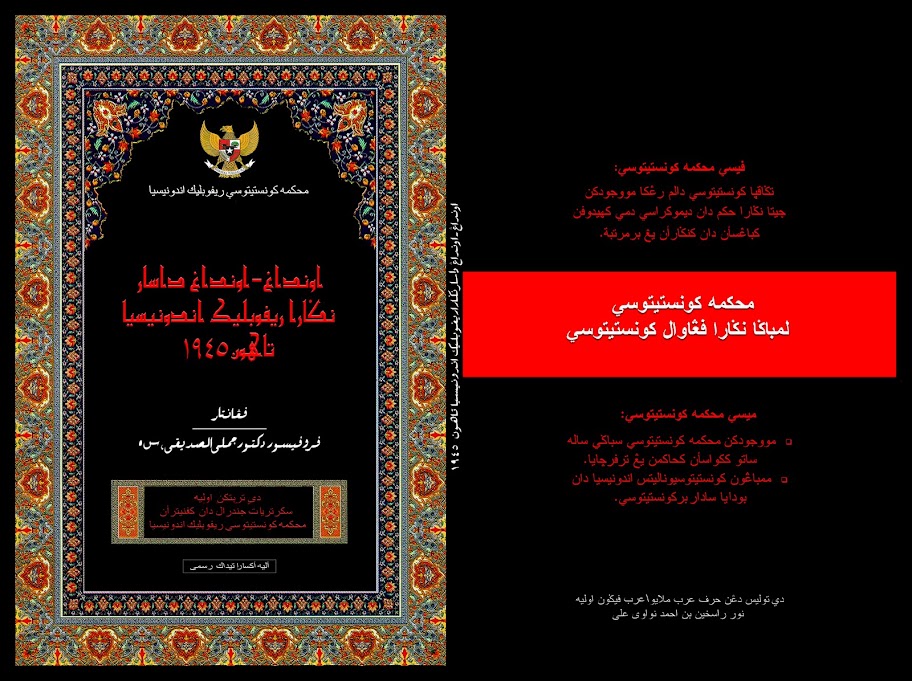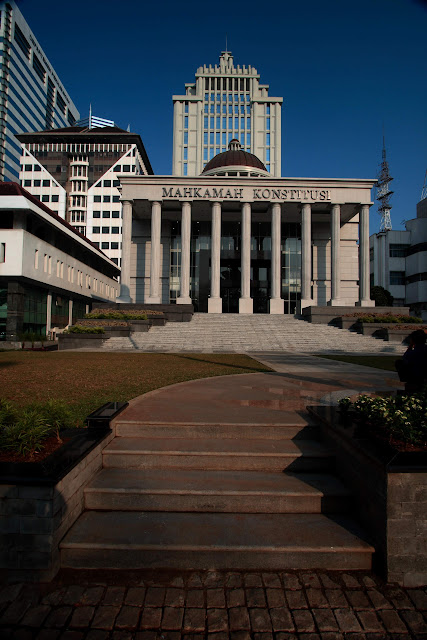Decision of the Constitutional Court (MK) which shall be final and
binding (final and binding) was tested in the trial Court, Thursday
(13/10/2011). Judicial review of Article 10 paragraph (1) of Act 8 /
2011 on the Constitutional Court was filed by Salim Alkatiri, a doctor
on the island of Buru and expert staff in the Government of South Hulu
regency, Maluku Province.
Article 10 paragraph (1) of Act 8 / 2011 the Constitutional Court Law
reads: "The Constitutional Court has the authority to hear at the first
and last decision is final for: a. test the laws against the
Constitution of the Republic of Indonesia Year 1945; b. deciding
authority dispute of state institutions whose authorities are granted by
the Constitution of the Republic of Indonesia Year 1945; c. decide upon
the dissolution of political parties; and d. decide upon disputes on
general election results "
The article was, according to Salim, is contradictory to Article 28I
Paragraph (2), and Article 27 Paragraph (1) of the 1945 Constitution.
Salim argues, the Constitutional Court’s decision is final closing to
take legal chances another. Salim considers the final decisions involve
discrimination. He compares with the decision of the Supreme Court (MA),
terraced starts from the District Court, Court of Appeal and Cassation
at the Supreme Court. In addition there are legal remedies Review (PK).
"This is discriminatory. Two of these agencies is the same agency. Why
there is one, there is a review, reconsideration no? " said Salim.
Final decision of the Constitutional Court made him failed to follow
the Election District of South Buru. Salim partner, La Ode Badwi
Alkatiri does not pass verification, among others, because Salim had
been sentenced for two years in prison for a crime of corruption of
which the penalty over five years based on court decisions that have
been legally enforceable.
Case Number 69/PUU-IX/2011 preliminary hearing was conducted by the
Panel of Constitutional Justices Anwar Usman, as Chairman, accompanied
by Sodiki and Muhammad Alim. Responding to the petition Salim, Ahmad
Sodiki stated, the Court authority to hear the first and last, the final
decision to test the law, is the sound of Article 24C Paragraph (1) of
the 1945 Constitution. "Court is not authorized to change the
Constitution, a change that is the MPR. So, should the proposal was
presented at the Assembly. Article 24C Paragraph (1) it must be changed
in accordance with the contents of the petition, "advises Sodiki.
(Rosihin Nur Ana / mh/Yazid.tr)







